In the past few years more and more people have been moving toward organic foods. You can often find a selection of organic products, once only available at heath food stores, at most supermarkets these days, like Superstore, Costco or even Walmart. You may however been wondering if organic products are really better for your health, and whether it is worth the extra costs to splurge on the organic label.
What is organic?
Organic is primarily a labeling term used on a wide variety of foods that have been produced through strict practices approved by the U.S. Department of Agriculture (USDA) and its National Organics Program (NOP). These standards prohibit the use of:
- antibiotics
- artificial growth hormones
- high fructose corn syrup
- artificial dyes (made from coal tar and petrochemicals)
- artificial sweeteners derived from chemicals
- most synthetic pesticides and fertilizers
- genetically engineered ingredients (GMOs)
- sewage sludge
- irradiation
Single-ingredient foods, such as fruits, vegetables or eggs, that have been grown according to USDA principles are labeled 100 percent organic and can carry the USDA seal.
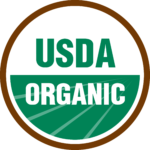
Processed foods that have more than one ingredient, such as crackers or cereal, can use the USDA organic seal plus the following wording, depending on the number of organic ingredients:
- 100 percent organic: Must be either completely organic or made of all organic ingredients
- Organic: Must be at least 95% organic
Processed products that contain at least 70% organic ingredients may use the phrase “made with organic ingredients” on the label, but cannot use the seal. Foods containing less than 70% organic ingredients can’t use the seal or the word “organic” on their product labels. They can include the organic items in their ingredient list, however.
Organic: Less contaminated?
According to a large study published in the Environmental Health Perspectives journal, we consume fewer pesticides when we eat organic foods compared to their conventionally grown counterparts. Moreover, tests by several governments have shown that organic foods carry just a tiny fraction of the pesticide residues of the non-organic alternatives while being free from growth hormones, antibiotics, and many additives allowed in many conventional foods.
Organic: More nutritious?
A controversial study that came out of Stanford in 2012 found that there was no significant nutritional difference between organic and conventional produce. They hand-selected 237 studies to analyze and concluded that there was no difference in the vitamin, protein or fat content between organic and conventional produce and no evidence of health risks with conventional produce, other than a 30% increased risk of exposure to pesticide residues and antibiotic-resistant bacteria. This study was widely criticized by the scientific community for using faulty methods and leaving out several really important studies about nutritional content.
In 2014, the British Journal of Nutrition released the largest international analysis ever, covering 343 studies on organic crops. They found that organic produce IS, in fact, more nutritious and contains up to 70% more of the health-promoting antioxidants than conventional produce. With organic methods, the nitrogen present in composted soil is released slowly and therefore plants grow at a normal rate, with their nutrients in balance. Chemical fertilizers, however, allow the vegetables to grow bigger and faster with little effort, hindering proportional antioxidant development. So even though the vegetables are larger, the health benefits aren’t the same. Antioxidants are developed as the vegetable fights to survive and grow, so if they are protected by chemicals you get a different result. The review also found that conventional produce has more pesticides and up to 48% percent more exposure to the toxic metal and known human carcinogen, cadmium.
Organic: Better for the environment?
Chemical fertilizers and pesticides have been scientifically proven seriously damaging to both the environment and human health. Pesticides not only kill the pests, but also many beneficial insects including honey bees, and are sometimes even lethal for small mammals and birds. Nevertheless, their detrimental effect on the environment does not end there. Pesticides and fertilizers reach surface water through runoff from treated plants and soil, contaminating our water supplies as well as aquatic life. They also penetrate deep into the soil reaching the underwater, which is the main source of drinking water in many parts of the world.
Avoidance of chemicals and organic farming practices, on the other hand, benefit the environment by encouraging soil and water conservation and reducing pollution. Farmers who grow organic produce opt for natural fertilizers to feed soil and plants, and use crop rotation or mulch to manage weeds, saving the farmland from tons of synthetic pesticides and fertilizers. Moreover, organic farming helps preserve biodiversity and prevents domination of particular species over the others.

Organic: Costs more?
Organic farming actually saves a lot of money. Fossil fuels, chemicals, fertilizers, and antibiotics are all expensive. Organic sustainable farming has been shown to produce as much or in some settings a lot more food. However, the reason why organic foods cost more at the grocery store is that the organic supply is limited compared to the rapidly-growing demand. Currently, only less than 1% of our farmland is dedicated to growing organic crops, with the total amount of consumption of organic food being around 4-5%. Marketing and distribution of organic products are relatively inefficient and costs are even higher because of the small volumes.
You can still purchase organic foods at a lower cost, however, by shopping locally, visiting farmers markets, buying in bulk, using box schemes and getting vegetables, fruits, eggs or other animal products from smaller farms that fully meet the requirements of organic agriculture, but have not been certified.
Bottom line:
The key to a healthy diet is eating more fresh vegetables and fruits in general. Conventional produce is still much better than no produce at all and you’re not on the fast-track to death if you eat it! However, as discussed above we know for a fact that organic foods are less contaminated, more nutritious and better for the environment. So use your own judgement to decide whether you’d like to buy organic or not.
If your only concern is the higher price tag, you could save some money on produce for the “Clean 15” (illustrated below) as listed by the Environmental Working Group (EWG), since they are the safest conventionally grown crops to consume*. Make sure to opt for organic when it comes to the “Dirty 12” though, as they are the most heavily sprayed produce. In addition, stay away from all conventionally-raised animal products to avoid the additional hormones, antibiotics, pesticides, etc.
While it’s best to choose organic unprocessed food whenever possible, if going for organic packaged products, always make sure to read the ingredient lists. Similar to conventional processed foods, some organic and non-GMO products contain unnecessary additives –such as hidden forms of MSG, carrageenan, vegetable oils, natural flavors– that can be detrimental to your health and waistline.
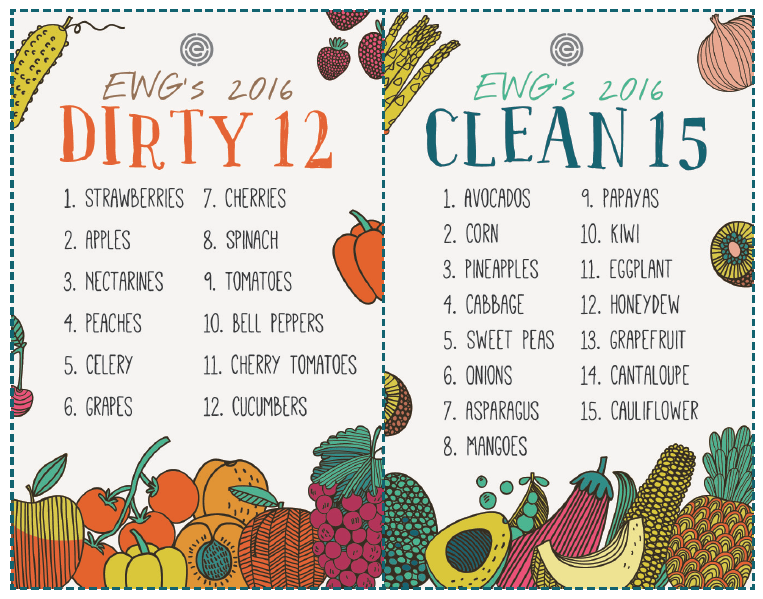
* Even though CORN and PAPAYA are on the Clean 15 list, it’s best to buy them organic, since over 90% of the corn grown in the U.S. and around 75% of the papaya from Hawaii are GMO
WOW! Congrats to you my health-conscious friend for making it this far 😉 Now let me know what you think about organic foods in the comments below.
P.S. If you think your family and friends might benefit from this information, please share this post with them 🙂
P.P.S. If you want to have a handy grocery store guide with guidelines on what to look for and which ingredients to avoid, plus a weekly meal plan with 30+ clean, nutritious quick and easy recipes, check out my Happy Bites Meal Plan now.
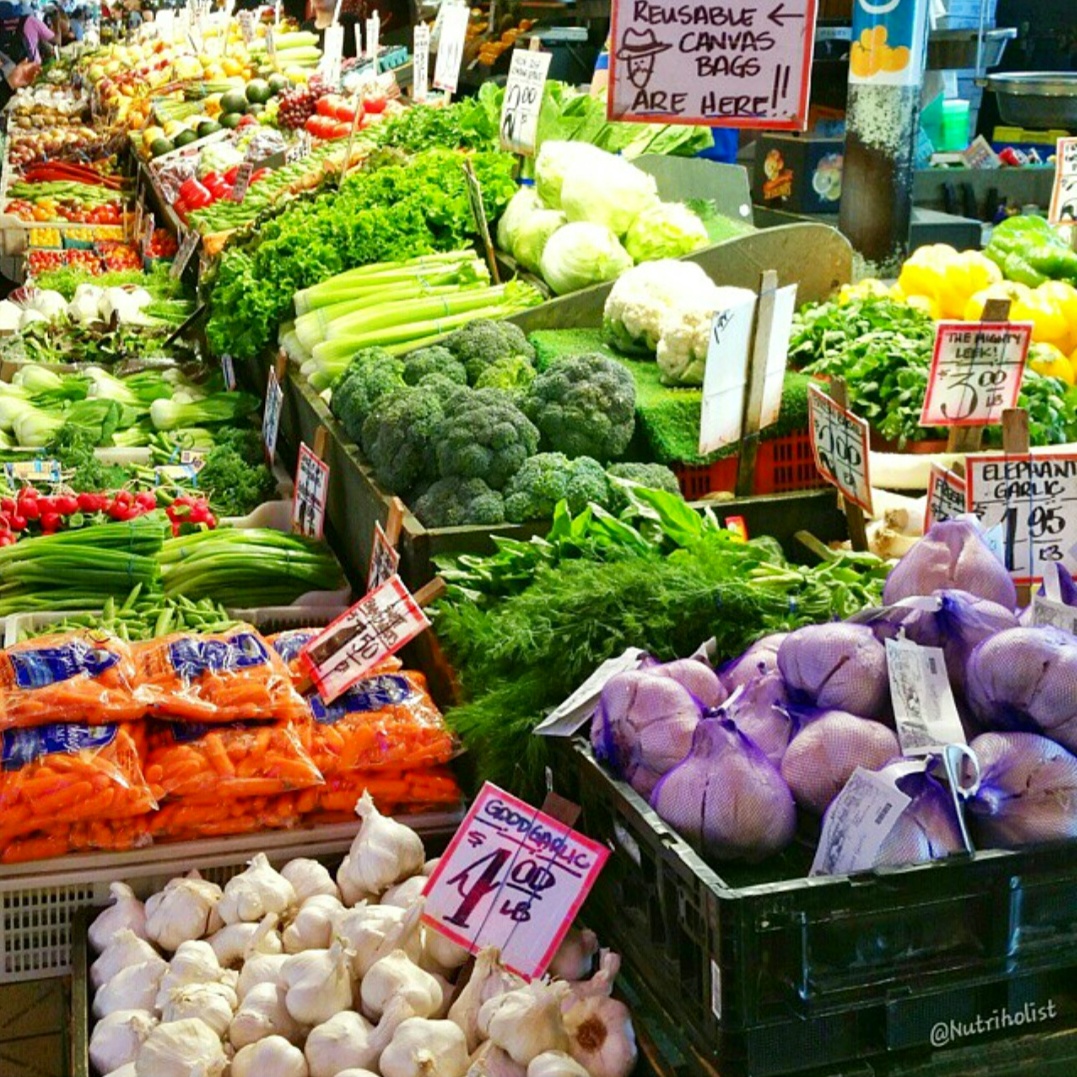



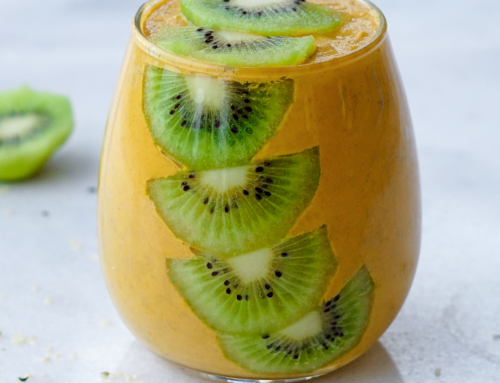

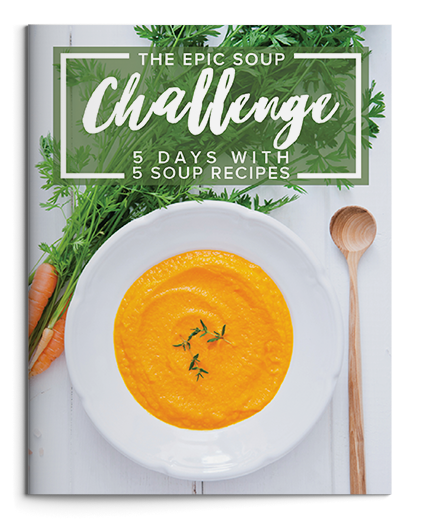
Leave A Comment